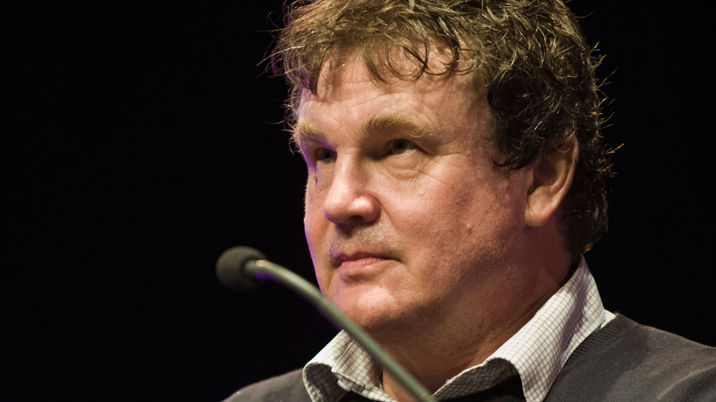
In a recent InPublishing interview, the former editor of the Daily Mail and current editor of The Independent, Geordie Greig, told how he turned down a job offer at a leading American international merchant bank to become a junior reporter on the South East London and Kentish Mercury for a fraction of the pay.
For Greig, and many others who go on to have a distinguished career in the newspaper industry, only journalism would do.
The early career of political journalist, author and stringent critic of standards in both politics and journalism, Peter Oborne, could hardly be more different.
There is no trace of journalism in his early employment record. After giving up work on a history doctorate, Oborne became a merchant banker at one of the City’s most venerable institutions, NM Rothschild.
He stayed at Rothschilds for three years before starting at the Financial Weekly magazine, now no more. But those years in the City have informed, in surprising ways, his approach to political reporting, everywhere from the Daily Express and the Evening Standard to the Daily Mail and the Daily Telegraph, underpinning key decisions and turning points.
Importance of integrity
“I was a hopeless merchant banker but I worked for a wonderful bank, Rothschilds, and I learned a lot of things, above all, integrity. It was drilled into you that you should be absolutely scrupulous,” Oborne emphasises.
He worked on stock market flotations where everything in the prospectus had to be fair and 100 per cent accurate.
“Any inaccuracies and they would come down on you like a ton of bricks. A fraudulent prospectus and everyone, the chairman and the chief executive, could go to jail,” he adds.
Apart from his political journalism, Oborne is well known for his sometimes contrarian books: ‘The Rise of Political Lying, The Assault on Truth’, where he exposed the lies of Boris Johnson and Donald Trump, ‘A Dangerous Delusion: Why the Iranian Nuclear Threat Is A Myth’ (with David Morrison) and ‘The Fate of Abraham’ which argued that an existential clash between the West and Islam “is a dangerous and destructive fantasy”.
Yet, if there is a defining period in the career of Peter Oborne, it is between 2014 and 2015 when he was chief political commentator of the Daily Telegraph. Oborne had written a piece reporting that the HSBC bank accounts of prominent British Muslims had been cancelled without explanation but the piece never appeared. Oborne looked into what was going on and found out that a story by the paper’s banking correspondent, Harry Wilson, claiming “a black hole” in the finances of the Hong Kong-based bank had been removed from the Telegraph’s website. He also spotted other examples of stories critical of HSBC that either didn’t appear or were down-played compared with the coverage of rival papers.
“I was shocked when I discovered the advertising department were able to block, in my case, a strong news story. I thought it was a betrayal of everything that journalism and the Daily Telegraph stood for,” says Oborne who also believed that lucrative special branded content from China, since discontinued, may have influenced coverage of Hong Kong.
Many journalists faced with such a dilemma would have grumbled in the pub and leaked stories to Private Eye but would have continued to draw their salaries.
Oborne resigned and went public with his complaints against Telegraph management.
The integrity thing.
“It cost me a fortune,” admits Oborne who has increasingly fallen out of love with the mainstream media, a response that is largely reciprocated because of his criticisms.
“I am now persona non grata with the conventional media. I’m not really invited on the BBC and don’t get pieces in the Mail or Telegraph — it’s not really surprising because I lay into then and my income has stagnated,” he says.
Brexit ignored
His views on the recent election campaign are unsurprisingly stringent — in common with many experts, he believes major issues such as the economy and the continuing effects of Brexit (“the major social and historic issue of the time”) were ignored by politicians and most of the media.
Interestingly, Oborne was once an enthusiastic Brexiteer who has since recanted and has published long articles explaining how and why he was wrong.
The headline over his piece in openDemocracy said: “I was a strong Brexiteer: Now We Must Swallow our Pride And Think Again.”
Another example of integrity.
Oborne believes there should now be an independent inquiry, a Royal Commission, into all aspects of Brexit and that the prime minister, Sir Keir Starmer, should have put it in the Labour manifesto.
With a few honourable exceptions, such as The Guardian and the Financial Times, much of the press, he believes has have been “totally discredited” by their uncritical support for Brexit and Boris Johnson and then being equally supportive of Liz Truss and Rishi Sunak.
Such papers, he argues “no longer represent the interests of their readers. They have become jackals of the super-rich”.
Oborne believes that the Telegraph has moved to the far right, or has become the vehicle of the far right, far removed from the traditional Conservatism of former owner Lord Hartwell and his legendary editor, Bill Deedes.
At the same time, the Conservative Party “has transmogrified from being a Burkean Party (after the conservative philosopher Edmund Burke) into attacking all the things that the Conservatives have traditionally supported such as the rule of law, even hating judges,” says Oborne.
The former Telegraph journalist believes that who wins the auction for the Daily Telegraph and Spectator magazine, which got under way in July, is vital because the paper could become the battlefield where the soul of the Conservative Party is fought out in coming months.
“I absolutely think that,” says Oborne who believes that the Conservatives will have to come to terms with Nigel Farage’s Reform party in some way. He fears that, over time, it is “quite likely” that Reform will manage a reverse takeover of the Conservatives and gain a legitimacy they could get no other way.
The Middle East
Oborne’s disillusionment with the British political system, and the newspapers which support it, has deep roots and goes back to Prime Minister Tony Blair and the Iraq war.
“I went through a crisis basically over the Iraq war. I was terribly shocked that the British government, in my view, would have deliberately lied to the British public in order to justify an illegal war. It made me examine all the assumptions I had made,” Oborne admits.
As a result, someone who describes himself as a regular Anglican churchgoer whose wife Martine is a Church of England vicar in west London, started to look at how Islam was reported and found what he saw as a great wave of Islamophobia at the time.
“I wrote a lot of pieces about torture and the war on terror misreporting in every British newspaper with the exception of the FT,” says Oborne who also attacked the reporting of “the Trojan Horse affair”, the alleged attempt by Muslims to take over a number of Birmingham schools which he believes turned out to be nonsense.
Such reporting took him further and further away from the mainstream media but he says he is “quite old” and has no complaints. He can still make a noise about what he believes is important in outlets such as openDemocracy and Middle East Eye.
“I am much happier. It’s a great relief. It was a negotiation and it was soul destroying in the end,” he says.
In recent months, Oborne has taken a great interest in the horrors of Gaza and has spent some time on the West Bank, particularly in the city of Nablus.
“It is obvious that the Israeli government has committed a series of atrocities and they are well documented now and the terrible genocidal language used by Netanyahu (the Israeli prime minister) which has spread to the ordinary troops. These are matters for the International Court of Justice to look into, Netanyahu as well as the Hamas leaders,” he says.
In July, Oborne took himself off to Nablus again to see how things have changed there since the war.
“I take myself somewhere without a position about what I am going to write. I am funding my own trip,” explains Oborne who has not decided yet whether or not to write a book on the subject.
One task while in Nablus is to edit the text of his latest book, due out in April, a comprehensive history of cricket written with Richard Heller, the journalist who was chief of staff to Labour politician Denis Healey.
Oborne has played cricket for 40 years and has taken a team to play in Pakistan and, this summer, his motley crew of friends complete with a handful of journalists will be playing cricket in Ireland.
On more serious matters, Oborne says at the age of 67, he has reached the stage when he is mainly interested in doing good.
“When you eventually die, you want to leave behind a better place. When I am writing books, I really want to do some good,” says Peter Oborne, perhaps displaying integrity again.
This article was first published in InPublishing magazine. If you would like to be added to the free mailing list to receive the magazine, please register here.












